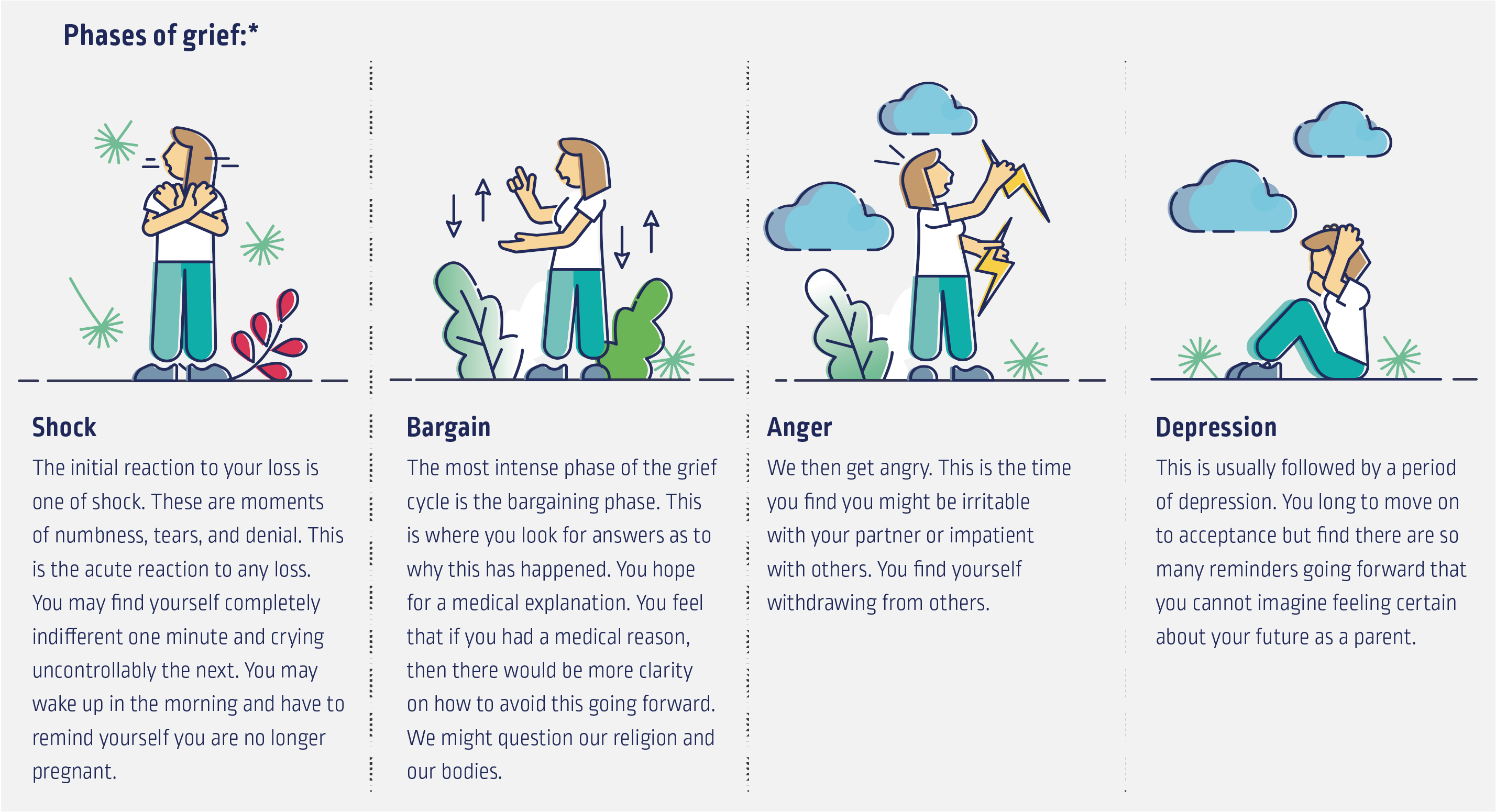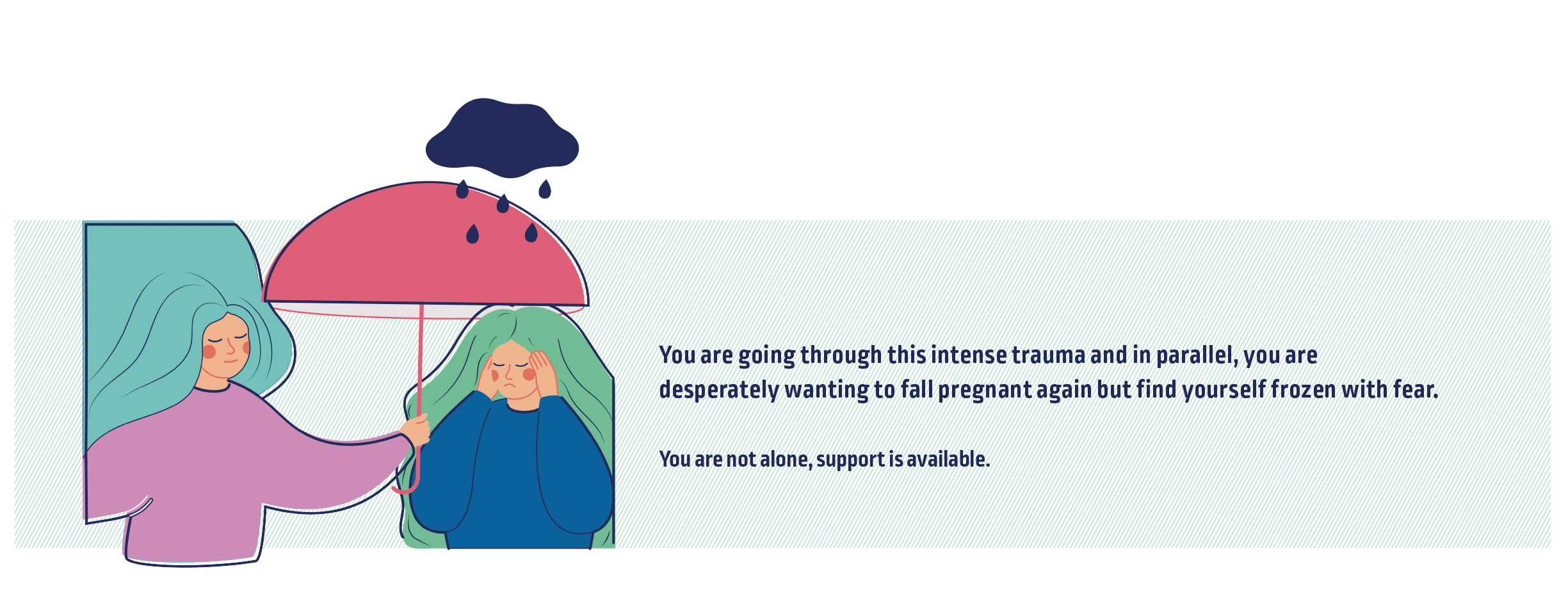The loss of a pregnancy at any stage is the loss of memories we have in the future. We don’t find comfort in fond memories. With pregnancy loss there is grief for what could have been or what should have been. As soon as we make the decision to start a family, we start laying down the foundations and creating a vision of the journey we are about to take. The decision to have a baby is a lifelong commitment, which is why so many of our values, hopes, and expectations come to the fore.
These are emotionally laden values, and when we lose our baby, it is considered a life trauma. We made a decision to enter a new stage in our lives, not just a transient adventure.
We booked our ultrasounds and established an estimated due date. We imagined our gender reveal, baby shower, birth, and growing family in the coming years. We’ve probably diarised each doctor’s visit, and some have started planning maternity leave and babymoons. Each of these remains a potential trigger for our grief in the future.
Roughly 1 in 4 women experience a pregnancy loss. This might be an early pregnancy loss due to an abnormality detected in utero, a late miscarriage, or a stillbirth. A quarter of women going through a trauma that is not often spoken about. Some of these women or couples may find themselves alone, struggling for support, depressed and uncertain, coupled with feelings of guilt.

*Everyone experiences grief in a different way, and you may not follow these standard phases of grief. If this is not your experience, you are not alone. The grief process is very personal and unique to each individual.

Loss as a parenting pair
Within a relationship, men and women cope differently with loss. Men might react with shock and then anger. Women tend to blame themselves and internalise their feelings. Loss in itself does not create conflict, but it is management of the loss going forward that creates tension. It is highly recommended that you seek support if you feel you and your partner are coping differently, to the point that this creates tension in the relationship. Those around you also don’t understand your loss. They may avoid talking about it and be perceived as insensitive. Always keep in mind that those around you may not know what to say or may say something insensitive to mask their discomfort. Pregnancy loss is a traumatic event and, therefore, support is essential, even if you may not want to talk to anyone. However, resources are available to help you understand your future options and to speak to others who can support you.
Support toolbox:
After losing a pregnancy, there are many unanswered questions. As humans, we may want answers because that helps us navigate the future with more certainty.
Chromosomal abnormalities cause 50% of all miscarriages. Products of Conception (POC) Screening can provide you and your doctor with information for future planning. POC may give answers to those suffering a pregnancy loss and help doctors assess your future risk and determine the next step forward.
- Seeing a genetic counsellor can provide support in the form of information about your loss, as well as information about how that loss might affect future pregnancies. They are a great resource for understanding how certain genetic conditions might affect you or your family.
- There are various days of remembrance and it is encouraged to participate in these to honour your baby and to find comfort or solace in knowing that you are not alone.
9-15 October: Baby Loss Awareness Week is a special opportunity to mark the lives of babies lost during pregnancy or soon after birth.

15 October: The Wave of Light invites baby loss families, friends, loved ones and supporting organisations from around the world to join in honour and remembrance on October 15th, at 7pm in all time zones. In the first time zone, illuminations and candles remain lit for at least one hour, with the next time zone lighting in turn. This moves westward as the Wave of Light circumnavigates the globe. Buildings, landmarks, monuments, and venues are illuminated while individuals, families, friends, and supporting organisations participate in lighting candles in remembrance.
It is strongly recommended you seek emotional support in some form. This will help you cope with your loss, and it may help you with managing the anxiety and fear you might experience in your next pregnancy.
Mandy Rodrigues, Clinical Psychologist specialising in fertility

 Back to Blogs
Back to Blogs